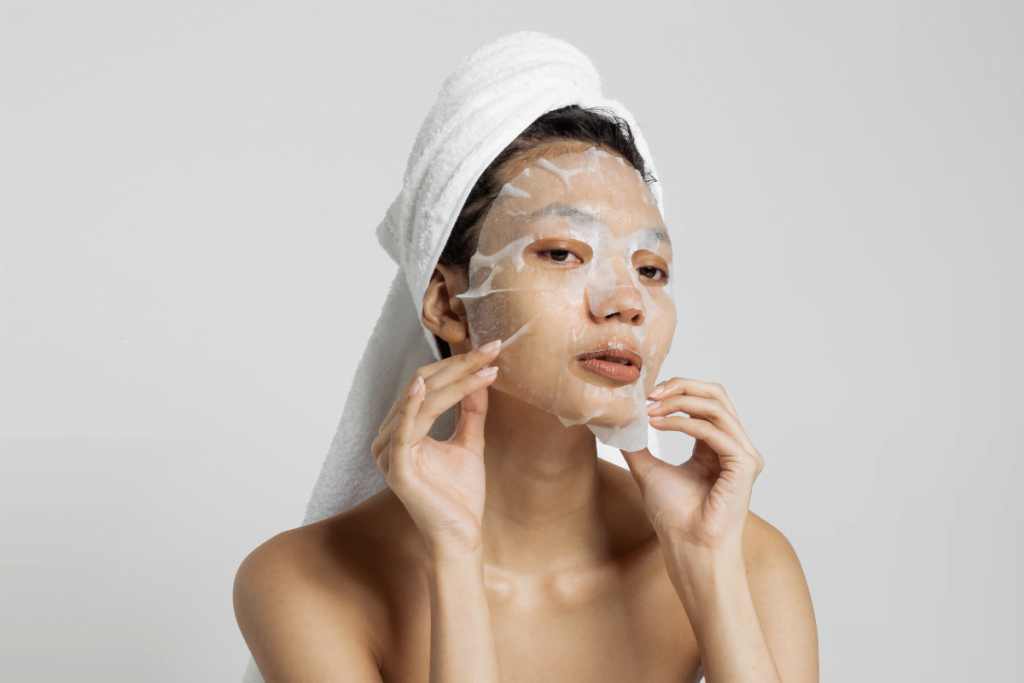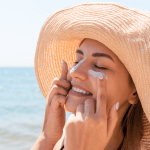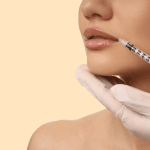In clinic, hydrating masks are often used as an adjunct to moisturizers. They can support short-term comfort, reduce tightness, and improve surface feel. The value is not “magic results.” It is controlled occlusion, water-binding ingredients, and a predictable contact time. For dry or sensitized skin, that can matter between visits.
This guide summarizes the science at a practical level. It also covers how to evaluate formats, ingredient lists, and operational fit. The goal is consistent counseling and clean procurement workflows, not consumer marketing language.
Key Takeaways
- Hydrating masks support the stratum corneum barrier through water-binding and occlusion.
- “Hydration” differs from “moisturization”; both can affect skin feel.
- Sheet and biocellulose masks mainly improve contact and occlusion.
- Ingredient classes matter more than trend labels or regional styling.
- Clinic workflows should emphasize verification, traceability, and documentation.
Access to professional skincare supply is usually restricted to licensed healthcare accounts.
Hydrating Masks: What They Are and Why They Matter
A facial mask is a delivery format, not a pharmacologic category. Most masks are cosmetics. They are designed to sit on the skin for minutes, then rinse or peel off, or remain as a thin film. Compared with a standard moisturizer, the differentiator is time under occlusion and a higher perceived “dose” of humectants (water-binders) and emollients (skin-smoothers).
Why this matters in practice: patients often interpret dryness as “dehydration,” and redness as “inflammation.” A mask can temporarily reduce roughness and tightness, which improves adherence to a longer-term routine. It can also be a controlled, clinic-supported step after cleansing or before sunscreen use. For a broader view of mask and peel formats you may stock, the Peels And Masks category can help you map options by format.
Skin Barrier Basics Clinicians Can Explain Simply
Most perceived “hydration” changes happen in the stratum corneum, the outer layer of the epidermis. That layer works like a brick-and-mortar system. Corneocytes (protein-rich “bricks”) sit in a lipid matrix (“mortar”). When that structure is disrupted, the surface becomes rough, more reactive, and more prone to cracking. Patients often describe this as dryness, stinging, or “my skin feels tight.”
Environmental exposures, over-cleansing, frequent exfoliation, retinoid initiation, and cold low-humidity seasons can all reduce barrier resilience. Clinical conditions such as atopic dermatitis can also increase vulnerability. Masks that increase water content in the outer layer may improve feel quickly, but they do not replace a routine that supports barrier lipids and reduces irritant load.
TEWL, occlusion, and why timing matters
Transepidermal water loss (TEWL, water evaporating through the skin) is a useful concept for counseling. You do not need to measure it to use it. Anything that forms a semi-occlusive film can reduce evaporation for a short window. That can raise water content in the stratum corneum and improve flexibility. It also explains why contact time and fit matter more for some formats than ingredient novelty. A well-adhered sheet can provide consistent occlusion across contours, while a rinse-off cream mask depends on even application thickness.
Ingredients and Mechanisms: Humectants, Occlusives, Emollients
From an ingredient standpoint, most hydrating effects come from three buckets. Humectants bind water within the stratum corneum. Occlusives reduce evaporative loss. Emollients smooth surface roughness and improve slip. Many formulas combine all three, but their balance changes how a mask feels and who tolerates it.
For clinic teams, the most useful step is to translate label language into these mechanisms. When patients ask for “glow,” they usually mean smoother texture and more even light reflection. That is often a surface hydration and emolliency story. The same counseling helps you compare hydrating masks across brands without leaning on unverified superlatives.
Why it matters: Matching mechanism to skin complaint reduces trial-and-error and irritant reactions.
What to look for on an INCI list
Common humectants include glycerin, hyaluronic acid (a water-binding glycosaminoglycan), sodium PCA, and certain glycols. Occlusive agents include petrolatum, mineral oil, dimethicone, and some waxes. Emollients include fatty alcohols, triglycerides, squalane, and ester oils. In reactive patients, fragrance and high essential-oil loads are common tolerance limiters. In acne-prone patients, heavy occlusives can be uncomfortable, even when they are well tolerated on dry skin.
“Soothing” add-ons can include panthenol, allantoin, and colloidal oatmeal, but these vary by product. Antioxidants are often added for broader skincare positioning, but they do not substitute for barrier-support basics. For a concise review of how antioxidants are used in topical care, see Antioxidants And Skincare.
Mask Formats in Practice: Sheet, Biocellulose, Clay, and Leave-On
Format drives performance because it controls evaporation and contact. Sheet and biocellulose masks hold a water-rich serum against the skin and limit airflow. Cream rinse-off masks can deliver a richer occlusive phase, but application thickness and drying time vary. Leave-on “sleeping mask” styles function closer to moisturizers with heavier film formers. Clay masks are typically used for oil control and can feel drying, although some include humectants to reduce that effect.
When a team wants a consistent patient experience, fit and sensorial profile often matter as much as the ingredient list. Biocellulose, for example, tends to conform well and may support even contact. A representative format example is Jalupro Moisturizing Biocellulose Face Masks, which illustrates how a conforming substrate can be positioned for hydration and comfort without changing the underlying barrier logic.
Product traceability should be clear, with sourcing routed through vetted distribution channels.
| Format | What it does well | Common limitations | Operational notes |
|---|---|---|---|
| Sheet / biocellulose | Even contact, predictable occlusion | Fragrance sensitivity, fit variability | Single-use handling; assess packaging integrity |
| Cream rinse-off | Flexible lipid phase; “cushion” feel | Mess, uneven thickness, rinse variability | Staff training on removal and cleanup |
| Leave-on mask | Overnight film, high emolliency | Pilling, residue, acne-prone discomfort | Counsel on layering with actives and sunscreen |
| Clay-based | Oil absorption, feel of “clean” skin | Can increase tightness in dry skin | Consider spot-use protocols for mixed skin |
Some clinics also keep a targeted sulfur mask for oily or blemish-prone routines. One example format is ZO Sulfur Masque 85g Tube. Keep counseling conservative and aligned to label directions, since tolerability varies by patient and regimen.
How to Evaluate Claims and Fit for Your Patients
Patients search for “glow,” “glass skin,” or “best” lists, but clinical fit is more granular. Start with the skin state (dry, oily, sensitized), the current regimen, and known triggers. Then map the product to a mechanism: water-binding, occlusion, lipid replenishment, or oil absorption. In that context, hydrating masks are best treated as a comfort and routine-adherence tool, not a corrective therapy.
When comparing products, separate marketing claims from measurable behaviors. “Deep hydration” may simply mean a higher humectant load plus film formers. “Brightening” can mean light-reflecting smoothing, or it may imply actives that increase irritation risk. If the patient is using prescription topicals or post-procedure care, your internal protocol should control what is added and when.
Quick tip: Document known irritants (fragrance, acids) before adding any new mask step.
Common pitfalls that drive complaints
- Overuse frequency: barrier fatigue and stinging
- Stacking actives: acids plus masks on the same day
- Ignoring fragrance: reactions in sensitive patients
- Choosing heavy occlusion: discomfort in acne-prone skin
- Skipping moisturizer: short-lived “hydration” feeling
If you want to align mask selection with broader aesthetic plans, keep categories separate in your counseling. Injectable hydration or skin quality approaches have different mechanisms and risk profiles. For related reading on clinic discussions around hydration and skin quality, see Viscoderm Hydrobooster and Fillmed Filler For Clinics.
Clinic Workflow Snapshot: Sourcing, Storage, and Documentation
Operational consistency matters as much as product choice. A mask that is tolerated in one setting can cause issues if it arrives with damaged packaging, incomplete documentation, or unclear storage instructions. For clinics, hydrating masks should sit inside the same quality framework as other topical skincare: verified source, intact packaging, clear lot information, and staff training on use cases and exclusions.
- Verify: confirm supplier status and product authenticity documentation
- Document: lot numbers, expiry, and receipt condition
- Receive: check seals, cartons, and insert consistency
- Store: follow labeled temperature and light guidance
- Use: standardize cleansing, timing, and removal steps
- Record: note patient-reported tolerance and any reactions
Many professional suppliers focus on brand-name, manufacturer-sealed inventory intended for licensed healthcare use.
Procurement checklist for practice managers
- Lot traceability: capture lot and expiry on receipt
- Packaging integrity: inspect seals and sachet condition
- IFU availability: keep directions accessible to staff
- Ingredient review: flag fragrance and high-acid formulas
- Adverse events: set a simple internal reporting path
- Staff scripting: standardize patient-facing explanations
- Inventory rotation: first-expiry, first-out processes
When stocking adjunct hydration products, some clinics pair masks with a simple leave-on hydrator or antioxidant support. Examples that illustrate different topical textures include Hylanses MD HA Advance Hydration Gel Cream, C-Vit Liposomal Serum, and Ferulac Nano Additive Mist. Use these as workflow examples rather than default recommendations, since patient needs and protocols vary.
Authoritative Sources
- American Academy of Dermatology guidance on moisturizers and dry skin
- FDA overview of cosmetics labeling and regulation
- NCBI review on stratum corneum barrier function
Further reading: treat masks as one component of face masks skincare education. If you standardize mechanisms, formats, and documentation steps, patient experiences are usually more predictable.
This content is for informational purposes only and is not a substitute for professional medical advice.






